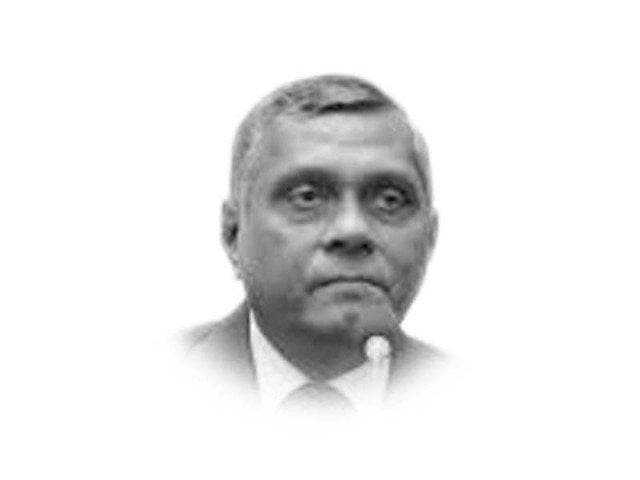
To transform Pakistan’s political culture; integrity, wisdom, perseverance and vision are some of the characteristics that must be adopted to shift from retrogression, backwardness and corruption. Pakistan’s political culture needs to be transformed so that political parties and other stakeholders induct professionalism to strengthen democracy, political pluralism and tolerance.
Even after 74 years of existence, Pakistan’s political culture still reflects feudal, tribal and ultra-conservative characteristics. Consequently, politics in Pakistan is the domain of family fiefdoms, feudalism, business and clergy elites. A positive transformation of Pakistan’s political culture is an uphill task and cannot take place unless there is a change in the mindset of those who wield political power. The reason for the dearth of good governance, rule of law, the justice system and across-the-board accountability is the lack of proper education, integrity, prudence and professionalism among the lawmakers. It took the West several centuries to develop its political culture based on democracy, political pluralism, integrity, accountability and professionalism. A society that lacks a proper work ethic and cannot differentiate between right and wrong cannot have a viable political culture.
Having stated and examined the requirements of a positive political culture, one needs to analyse what Pakistan lacks. Why is the country unable to produce politicians that possess insight, vision, integrity, accountability, and regard for the welfare of people? Pakistan’s political culture lacks maturity and professionalism, which raises the question: how can the country meet the standards of good governance by ensuring accountability of those who hold political power?
According to Dr Saeed Shafqat, a renowned political scientist of Pakistan, political culture means “a set of beliefs, attitudes, values and orientations towards political objects in a given political system. These political objects, in turn, may be identified as political parties, various types of elites (i.e. political professional, religious, financial, military, bureaucratic) autonomous groups, social classes, political institutions and so on.” The absence of civilised behaviour amongst lawmakers in parliament, and their non-seriousness in dealing with the economic crises and foreign policy challenges demonstrate they are a product of a political culture that favours patronisation, family fiefdoms, corruption and nepotism.
There is no shortcut to effectively address the shortcomings persistent in the political culture of Pakistan. However, there are some strategies that can help improve the political culture of the country, which will ensure economic progress, political stability, good governance, rule of law, accountability, justice system, and ability to deal with challenges in foreign policy.
First, those contesting elections must have good credentials in educational qualifications, a clean taxation record, no criminal history, and knowledge about legal matters and the world affairs. Unless lawmakers are of that calibre, it is unreasonable to expect the legislation to mitigate corruption and nepotism. The election commission should take the responsibility of ensuring that only applicants with proper credentials are allowed to contest parliamentary elections. Unfortunately, many candidates manage to enter parliament and assemblies with meagre educational qualifications, poor tax records, a history of corruption, nepotism, or criminal activities. The behaviour and demeanour of many members of parliament are extremely non-professional and reflect a poor political culture. The lawmakers make a mockery of themselves demonstrating their incompetence. Paradoxically, it is the military that provides an opportunity to such lawmakers by offering national security workshops and informative programmes at the National Defense University in Islamabad to foster sophistication and professionalism.
Second, in developed countries, those who aspire to contest elections, join parliament or become lawmakers study political science, history, law, international relations, philosophy and sociology. For them, the path to power does not involve familial connections, wealth or influence. Instead, they aim to excel in education, which will empower and equip them with the knowledge to function in the political world. As a result, their insight into politics, law, foreign policy and history is adequate and allows them to formulate better policies through legislation. Pakistan’s political culture can only transform if people with political knowledge and those with no traces of corruption and nepotism partake in elections and join the parliament. Otherwise, only those people will join politics who aim to expand their personal benefits. Such individuals are not interested in the welfare of the people. It is unfortunate and a matter of shame that members of the National Assembly and Senate fail to represent the ordeals of most of the population. Instead, they only represent the privileged few.
At present, the population of Pakistan is faced with a high inflation rate, which is further worsened by an increase in the prices of petroleum, electricity and gas. In response to these crises, members of parliament have remained silent instead of voicing people’s concerns. Had the political culture been honest, accountable and representative, the situation would have been much different, and the country would have been in a better state. Regrettably, some members in the Senate want an aircraft at their disposal for travel while others want a raise in salaries along with perks. It is unfortunate that it is these very people who represent much of the population that is economically impoverished.
Last but not least, to effectively transform the political culture of Pakistan, education must be made free and compulsory from primary to high school. It will inculcate values, skills and knowledge that will change the mindset of the people and inform them of their political rights. Quality education is imperative to reform the entire society and produce better decision-makers. At stake is the future of Pakistan in 2023 general elections.
Published in The Express Tribune, October 10th, 2021.
Like Opinion & Editorial on Facebook, follow @ETOpEd on Twitter to receive all updates on all our daily pieces.













COMMENTS (4)
Comments are moderated and generally will be posted if they are on-topic and not abusive.
For more information, please see our Comments FAQ